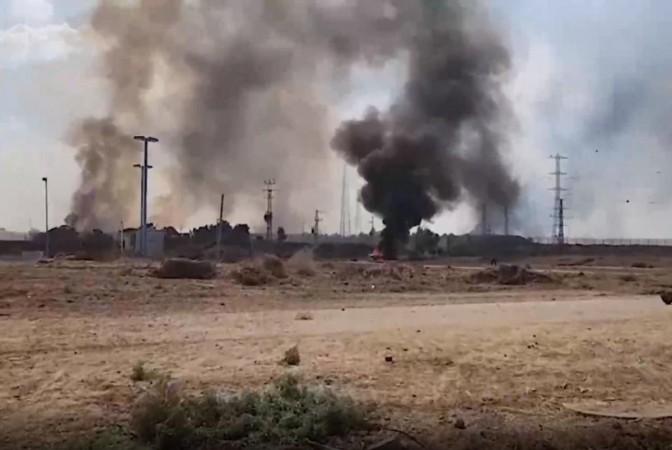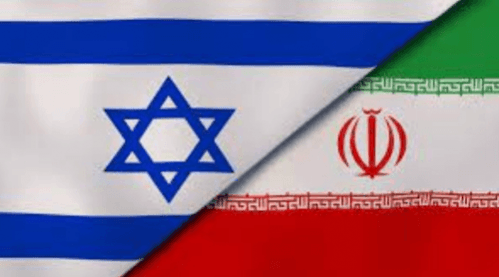
On October 25, the Israeli military announced that it had struck more than 7,000 targets inside Gaza. With hundreds of Israeli airstrikes hitting Gaza everyday and the much-dreaded Israeli ground incursion expanding, an even more dangerous phase of the war is to follow. By Friday October 28, international media and aid agencies had already lost contact with staff in Gaza in what is being feared as a complete information and communication blackout. Amidst all this what makes any possibility of resolution or de-escalation impossible is the complexity of geopolitics in play.
Does Iran have a role to play?
Earlier this week, the US said that it struck Iranian and pro-Iranian sites in Syria, and that it was, "separate and distinct" matter from the Israel-Hamas war. There is no denying that Iran's involvement in the war would accelerate it to a full-blown regional conflagration. As Israel continues to pound targets in Gaza, hitting residential blocks, buildings, aid centers; political watchdogs fear the worst. The possibility of this war expanding to two fronts with Lebanon and/or Syria. There are reports of cross-border clashes between Israel and Lebanese militant group Hezbollah alongside Palestinian armed factions since October 7 itself. There are allegations of the Lebanese militant group being backed by Iran. As per several reports, the fighting has already led to casualties in both Israel and Lebanon, including at least 40 Hezbollah fighters.

Syria has for decades been an active conflict zone between Israel and Iran and the shadow war between two countries. Earlier this week, US Secretary of State Antony Blinken issued a stark warning that the US would act "swiftly and decisively" if it came under any kind of attack from Iran and its proxies operating in the Middle East. His warning came close on the heels of White House accusing Iran of facilitating attacks on US military bases in Syria and Iraq. There are reports of Iran backing Hamas' October 6 attack on Israel although the U.S has said that there is no direct evidence that Iran was involved in Hamas attack against Israel. Iran has denied any involvement with the Hamas attack.
How is Egypt caught in the conflict?
It's not only Lebanon and Syria that have been peripherally caught up in the fighting, on Friday, projectiles hit two Egyptian Red Sea towns, wounding at least six people in Taba, said officials. Egyptian army spokesperson Colonel Gharib Abdel-Hafiz said an unidentified drone crashed into a building adjacent to a hospital in Taba, reports Reuters. While another projectile later fell near an electricity plant in Nuweiba town. It further reports that witnesses in both towns saw Egyptians warplanes flying overhead. Israel's military spokesperson Daniel Hagari said in a briefing, "To our understanding, the strike that took place in Egypt originated in this threat. Israel will work with Egypt and the United States and bolster regional defenses against threats from the Red Sea region."
Egypt has been an active member in negotiating access to aid for Palestinians, also trying to release hostages held by Hamas, letting its border be used for the transportation of humanitarian services. However, its proximity and geographical location has exposed it to incidental risks of a war. Last week, Egyptian border forces guards were injured after being indirectly hit by a shell from an Israeli tank. How the international agencies intervene and circumstances of Israel-Hamas war will all collectively determine the pace and trajectory of this conflict. Whether it remains restricted to Israel and Gaza or spreads to peripheral nations and regions.
In the meanwhile, death & destruction continues
Israel continues to expand its ground operations in the Gaza Strip, Hagari informed the media on Friday. This came after hours of intense airstrikes. Bigger fears of complete internet and communication blackout concern human aid agencies and organizations. There have been many reports of Washington Post and Al Jazeera reporters saying they have lost contact with colleagues inside the enclave. The United Nations has long warned that Gaza's 2 million residents, with half its population as children face a humanitarian crisis.
Israel is expanding its ground operations in the Gaza Strip after hours of intense airstrikes, Daniel Hagari, Israel Defense Forces spokesman, told reporters Friday. Israel's announcement came amid a "total or near total" internet blackout, the largest single disruption since hostilities began Oct. 7, according to internet monitoring groups. Washington Post and Al Jazeera reporters said they had lost contact with colleagues inside the besieged enclave. The United Nations has warned that Gaza's 2 million residents face a humanitarian catastrophe.

















